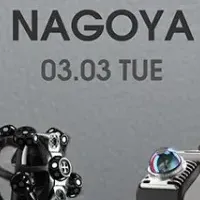
SandboxAQ Achieves Major Progress in Battery Shelf-Life Testing for U.S. Army's Advanced Maintenance
SandboxAQ Celebrates Landmark Achievement in Battery Technology
SandboxAQ, a leading innovator in AI solutions, has recently announced a significant advancement in battery shelf-life testing that promises to enhance the reliability and efficiency of battery use within the U.S. Army. This milestone comes as part of their ongoing collaboration with the Army's Combat Capabilities Development Command (DEVCOM), aiming to modernize power and energy management for military operations.
For extensive research, SandboxAQ has harnessed a vast dataset compiled from over 2 million hours of simulated and laboratory battery testing. This dataset centers around lithium-ion batteries, specifically 18650 cylinder cells, which are used across various Army applications, including electric vehicles and communication devices. By employing advanced AI techniques to simulate different real-world conditions like temperature variations, discharge rates, and aging, the company has created a robust predictive model for assessing battery performance and maintenance needs.
The Need for Advanced Predictive Maintenance
Traditionally, methods for evaluating battery shelf-life involved using proxy tests, which, while informative, often failed to deliver accurate predictions, especially for batteries that had been stored for extended periods. This inaccuracy could lead to the premature disposal of viable batteries or the deployment of unreliable batteries in critical situations, ultimately impacting mission readiness and safety.
SandboxAQ’s approach with its Large Quantitative Models (LQMs) offers a revolutionary shift in this methodology, presenting not only reduced timeframes for shelf-life evaluations but also increased accuracy in performance forecasting. By analyzing existing data, LQMs can ensure lithium-ion batteries comply with stringent military shelf-life standards, anticipated to range from 2 to 20 years.
Efficiency Gains and Future Innovations
With the integration of LQMs, the Army can now significantly shorten the time needed for shelf-life testing. What once took months or even years can now be accomplished in just days, allowing faster decision-making and improved operational agility. Furthermore, in-the-field battery chargers will be capable of sending real-time performance data back to the AI system, facilitating better maintenance planning and immediate support for warfighters in the field.
This level of predictive capability is especially critical considering the specific demands of military applications where failure is not an option. As Ang Xiao, Technical Lead of AI Quantum Application at SandboxAQ, highlighted, this achievement enables not just the Army but also commercial battery manufacturers to gain invaluable insights into battery shelf-life considerations that are often overlooked in typical consumer goods.
A Vision for the Future
The implications of this breakthrough extend beyond military use. SandboxAQ’s advancements signal a promising trend toward more accurate and efficient battery technologies across various sectors, paving the way for improved energy storage solutions in electric vehicles and beyond. With expectations of enhancing innovation cycles, this could lead to substantial cost savings in research and development for manufacturers, ultimately benefiting multiple industries striving for better energy efficiency.
In conclusion, SandboxAQ stands at the forefront of battery technology evolution, with their recent milestone paving the way for more reliable assessments of critical battery systems vital to both military and civilian applications. Their participation at the Advanced Automotive Battery Conference further underscores their commitment to advancing battery technology and sharing their insights with industry stakeholders.
For further details about the impact of Large Quantitative Models in the battery sector, interested parties are encouraged to visit sandboxaq.com for more comprehensive information.
Topics Consumer Technology)










【About Using Articles】
You can freely use the title and article content by linking to the page where the article is posted.
※ Images cannot be used.
【About Links】
Links are free to use.